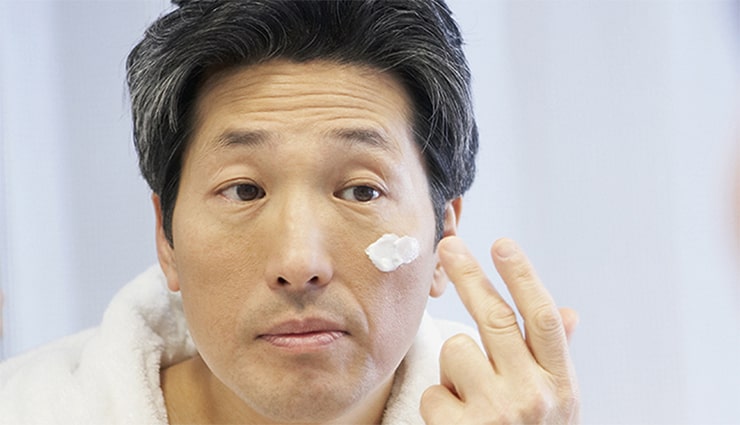Described by many as “the fountain of youth,” collagen is essential for looking great (glowing skin, gorgeous hair, and beautiful nails), moving well (flexible joints and lean, strong muscles), and feeling your a-game best. The problem, however, is that natural collagen production starts to fall off a cliff when you reach your 20s. And, by middle age, collagen levels are roughly half of what they used to be. This leads to an older-looking body that doesn’t feel or move like it used to. What, then, is the key to increase collagen production naturally?
The answer, as you’ll find out, is easier than you think.
The “Low-Collagen” Situation
BREAKING: 72-Year Old Grandma's Anti-Aging Discovery Sweeps The Nation
First, you may be wondering why collagen decreases as we age. If so, that’s a great question. For starters, as we get older, there’s an increase in the activity of enzymes responsible for breaking down collagen. What’s more, the body’s natural production of collagen decreases.
To add insult to injury, various common lifestyle factors can deplete collagen in the skin and throughout the body. This includes things like excessive stress, sun exposure, alcohol consumption, and of course, smoking. A poor diet and even things beyond our control, like air and water pollution, can all make a very bad “low-collagen” situation even worse.
Over time, this collagen deficiency is not only a culprit behind older-looking skin, hair, nails, muscles, and worn-down joints, but also the unhealthy gut and digestive problems many people experience as they get older.
And if you’re a woman over the age of 45, there’s a double whammy. That’s because estrogen is key to increasing collagen production. And after a woman hits 45, estrogen levels also plummet. In just the first 5 years of menopause, collagen in skin drops by as much as 30%—a big reason why women over 45 struggle with dry, less elastic, thinner skin and more fine lines and wrinkles.
So, let’s dig into how you can increase collagen production naturally…
Collagen = Collagen
The good news is you can increase collagen production in the body by consuming more collagen protein in your diet. After all, collagen protein provides the essential building blocks your body needs to replenish its collagen stores.
Yet hardly anyone is eating this mega-important form of protein because our diets are vastly different today than they’ve been for most of human history. Although bone broth is becoming increasingly popular, it’s rare for people to routinely eat collagen-rich foods, like gelatin, eggshell membranes, pickled pigs’ feet, fish scales, bone-in meat, and skin-on poultry, etc.
No wonder almost everyone is severely deficient in collagen.
Simply put, the simplest, most efficient, most effective way to get more collagen in your diet is to use a collagen protein powder. The right form of collagen protein—called hydrolyzed collagen peptides—not only provides the building blocks your body needs to replenish its own stores of collagen, but it also stimulates the production of new collagen.
Research has shown that supplementing with hydrolyzed collagen peptides supports a host of health, wellness, and beauty benefits, such as young-looking skin, strong fingernails, flexible joints, strong bones, gut health, and a stronger, better-looking body, to name a few.
HOWEVER, most people who take collagen don’t experience all its expected benefits because they’re unaware it’s only half the battle.
No wonder almost everyone is severely deficient in collagen.
Simply put, the simplest, most efficient, most effective way to get more collagen in your diet is to use a collagen protein powder. The right form of collagen protein—called hydrolyzed collagen peptides—not only provides the building blocks your body needs to replenish its own stores of collagen, but it also stimulates the production of new collagen.
Research has shown that supplementing with hydrolyzed collagen peptides supports a host of health, wellness, and beauty benefits, such as young-looking skin, strong fingernails, flexible joints, strong bones, gut health, and a stronger, better-looking body, to name a few.
HOWEVER, most people who take collagen don’t experience all its expected benefits because they’re unaware it’s only half the battle.
Why Collagen Protein Alone Isn’t Enough
You see, if you want to increase collagen production in the body, it is simply MISSION-CRITICAL to also provide your body with the right collagen booster “supporting nutrients.” These crucial nutrients enable the body to fully use collagen and maximally support its production, for fast and powerful results.
It’s kind of like building a house. Yes, with the right collagen supplement, you have the necessary building blocks. However, you need the experienced workers—the right supporting nutrients—to put all those building blocks in place.
What’s more, these supporting nutrients are more than just collagen boosters. They can even act as “collagen protectors,” helping STOP the unnecessary drain of collagen from your body.
That all begs the BIG QUESTION…
What exactly ARE the right supporting nutrients you need to increase collagen production naturally, and where can you find them?
- Vitamin C. Vitamin C is an absolute necessity for collagen synthesis, as it’s the essential co-factor for the two enzymes the body requires to produce collagen. Basically, you can’t make collagen without vitamin C. So, make sure you’re eating plenty of citrus fruits (e.g., oranges, grapefruit, clementine, and tangerines), bell peppers, bok choy, broccoli, Brussels sprouts, strawberries, pineapple, kiwifruit, cauliflower, dark leafy greens, cabbage, and tomatoes, which are all good sources of vitamin C.
- Zinc. Zinc, which is also necessary for increasing collagen production, and vitamin C together are a true “dynamic duo” when it comes to improving collagen production. In addition to helping increase collagen production, zinc is also mission-critical when it comes to replacing “old” collagen with “new” collagen. The best dietary sources of zinc are pumpkin seeds, sesame seeds, seafood (e.g., oysters, scallops, shrimp), beef, spinach, and cashews.
- Silicon. The third most abundant trace element in the human body, silicon stimulates the body to increase collagen production. In particular, it stimulates type I, which constitutes over 90% of the collagen in the human body. Furthermore, studies have shown that silicon supports younger-looking skin; strong nails; and gorgeous, healthy hair. The best foods for silicon are bananas, green beans, oats, rice, and tea.
While it’s possible to get the three aforementioned collagen support nutrients from the foods listed, there’s an appalling number of people who are deficient in these beauty-boosting nutrients. A major study published in the journal Nutrients found that less than 50% of people are getting the bare minimum of vitamin C through their diets.
That’s why I typically recommend supplementing with the above nutrients. And you can find them all in one place in Ageless Collagen Booster, which also features biotin and niacinamide for additional nail and joint health support.
In addition to those collagen-support nutrients, the following are also essential if you want to increase collagen production and support healthy levels of collagen. Unlike the above, however, I don’t typically make the broad recommendation of supplementing with these. Rather, I recommend them on an as-needed basis.
- Vitamin E. Vitamin E is actually a complex of compounds. This is one reason I prefer to get “it” from food. (Supplements, on the other hand, typically contain only one form of vitamin E, often synthetically derived.) Vitamin E works synergistically with vitamin C, and it helps maintain healthy collagen levels by protecting collagen (from cross linking and lipid peroxidation). Dark green leafy vegetables (like spinach, kale, mustard greens, collard greens, turnip greens, and Swiss chard), sunflower seeds, asparagus, almonds, broccoli, bell peppers, and tomatoes are all excellent sources of vitamin E.
- Copper. The reality is that collagen synthesis is quite a complex process that involves multiple steps. And one of those “steps” (a key enzymatic reaction) involves copper and the enzyme lysyl oxidase. You don’t need to worry about the details. But you do need to make sure you get your copper fix by eating Brazil nuts, sesame seeds, pumpkin seeds, spinach, shrimp, and cashews.
- Iron. Just like the other nutrients mentioned above, iron is intimately involved in the enzymatic process of collagen synthesis. Essentially, iron is just as important as vitamin C and silicon (and oxygen, for that matter) to increase collagen production. Beef is the best source of dietary iron as it is a much more readily absorbed form (i.e., heme). However, iron can also be obtained from plant-based foods (i.e., non-heme), such as sesame seeds, pumpkin seeds, and spinach. While menstruating women, expecting mothers, and highly active female athletes may require iron supplementation, it’s not a recommendation extended generally because some folks have issues with iron clearance. In addition, iron accumulation can be highly damaging to the body’s organs.
How to Increase Collagen Production: A Recap
TRENDING: Men Try This Tonight - You'll Never Need The Pill Again
Although collagen may not be “the fountain of youth” that Ponce de León was seeking, it sure as heck is an important player in looking, feeling, and moving your best. After all, it’s inextricably linked to young-looking skin, strong nails, gorgeous hair, a good-looking, functional body, flexible joints, a resilient digestive tract, and more. The key is maintaining healthy levels of collagen as you age. And you can stack the deck in your favor by making sure your menu includes the foods and supplements recommended above to increase collagen production naturally.









